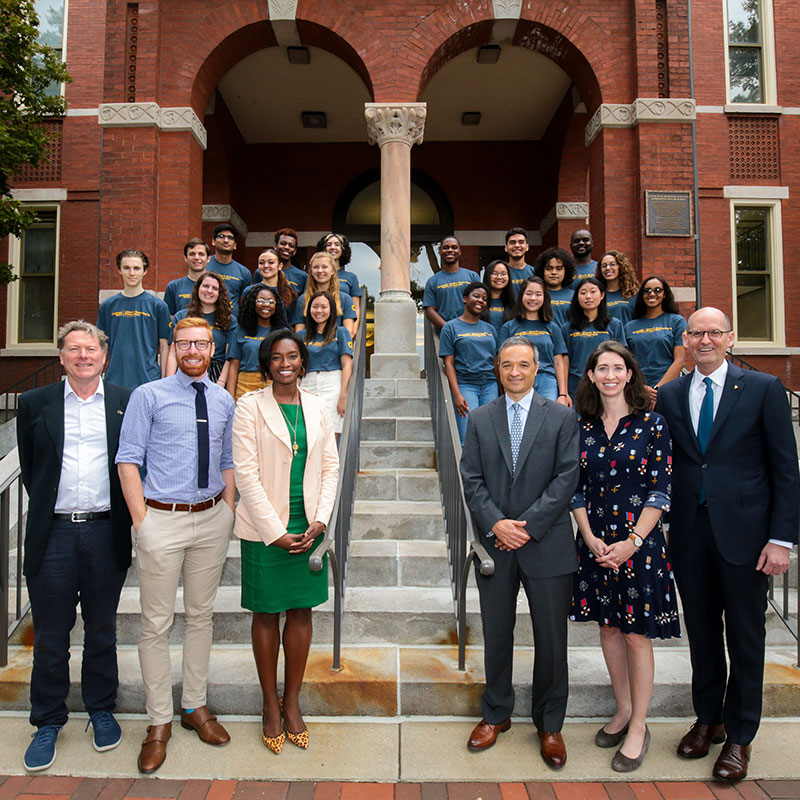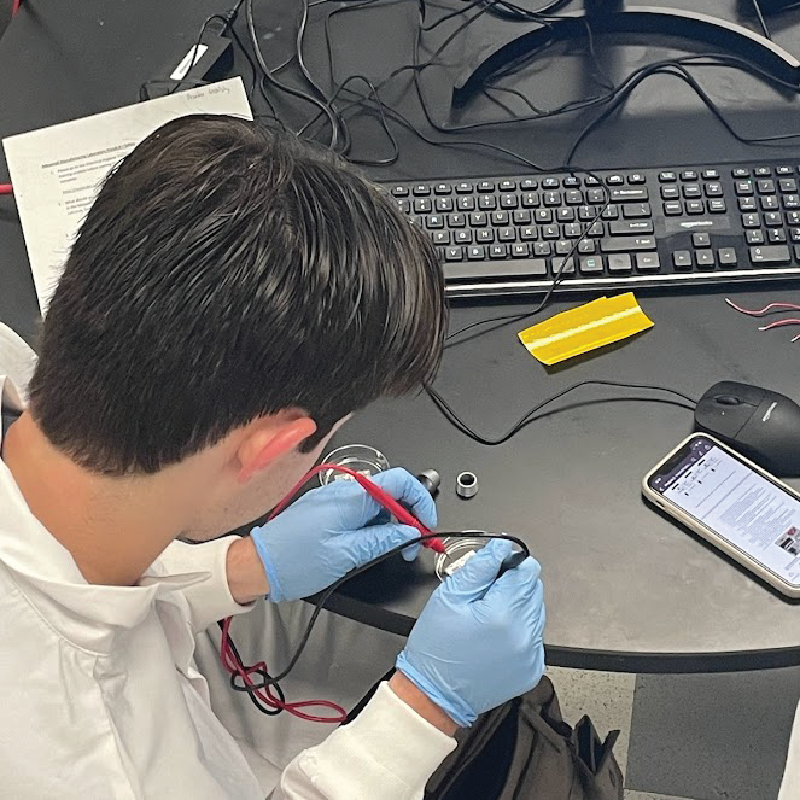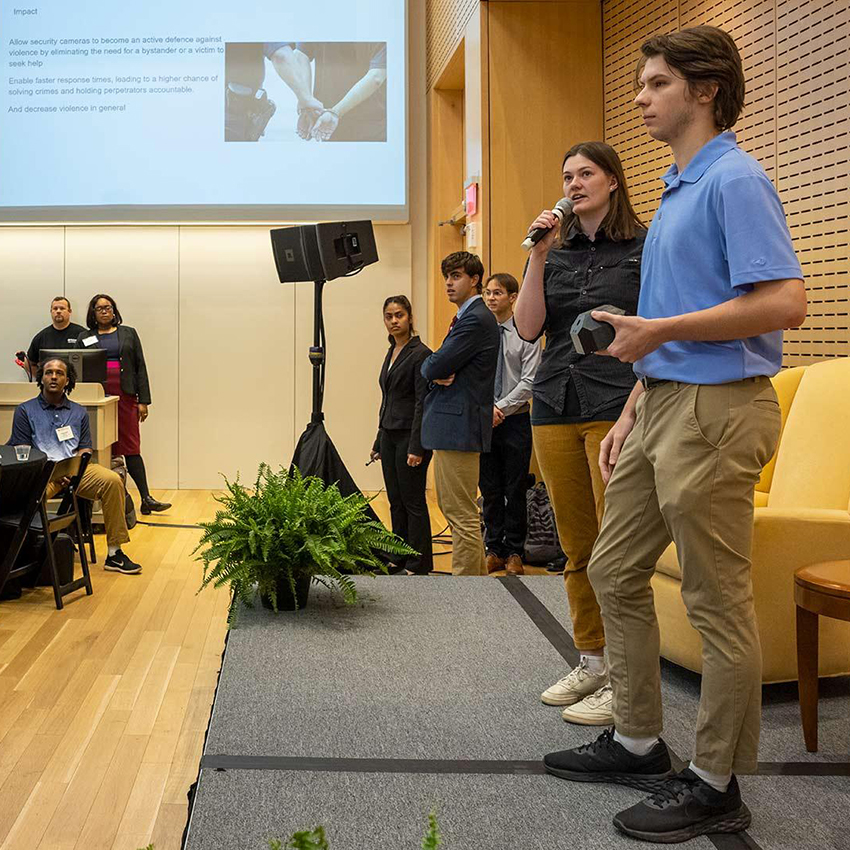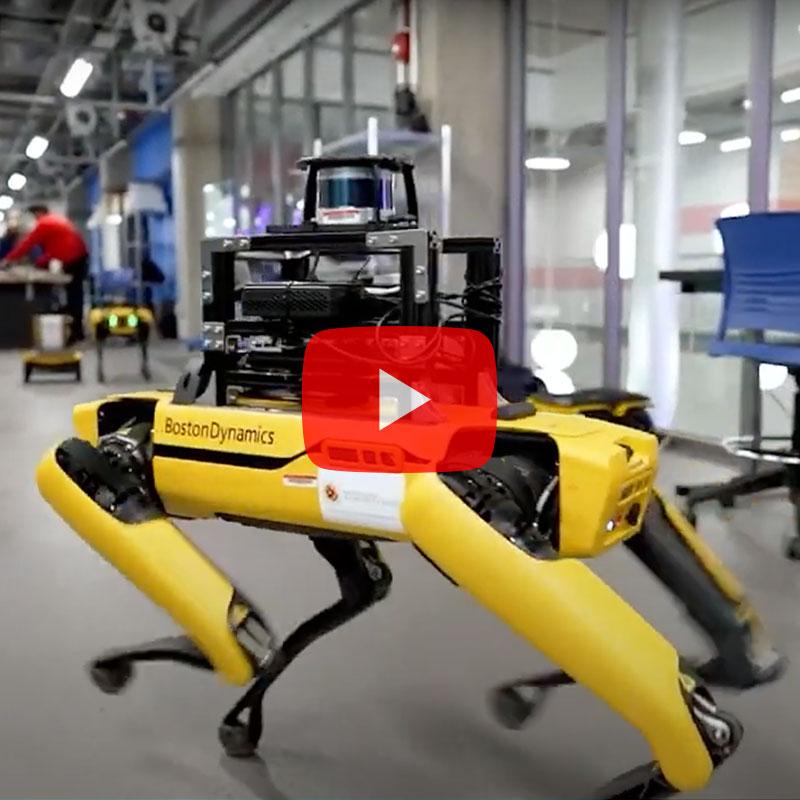NPR Features Alumnus Kantor's Research
February 21, 2008
The Deep Phreatic Thermal Explorer (DEPTHX) project is a $5 million, three-year, NASA-funded research effort. In addition to Carnegie Mellon, collaborators include the University of Illinois at Chicago, the University of Texas, the Colorado School of Mines, Southwest Research Institute, Stone Aerospace, Universidad de Nuevo Leon (Mexico) and Universidad del Noreste (Mexico).
The project is developing an autonomous underwater vehicle (AUV) that could one day explore explore the liquid water ocean under the frozen surface of Jupiter’s moon Europa. In the Spring 2008 issue of Systems Solutions newsletter, ISR featured one of the robot's first tests, exploring the unique biology of Mexico’s El Zacatón, the world’s deepest known limestone sinkhole.
The NPR story, which does not mention Kantor, covers another test for the AUV—operating in the icy waters of Lake Mendota in Madison, Wis. This is an environment more similar to the under-ice ocean on Europa. This version of the robot has been named ENDURANCE (Environmentally Non-Disturbing Under-Ice Robotic Antarctic Explorer). After Wisconsin, the team hopes to take the robot to the more extreme environment of Antarctica for more testing.
The vehicle is equipped with a Doppler velocity logger, a ring laser gyro-based inertial navigation system, a depth sensor, and 54 narrow beam sonar transducers. It uses all of these resources together to perform simultaneous localization and mapping. Kantor’s research contributes to the robot’s control, mapping and navigation systems.
Kantor earned his Ph.D. in electrical and computer engineering from the Clark School in 1999. His advisor was Professor P.S. Krishnaprasad (ECE/ISR). At Carnegie Mellon, Kantor teaches courses in robotic manipulation and controls and conducts research in control, sensing, and navigation for robotic systems.









